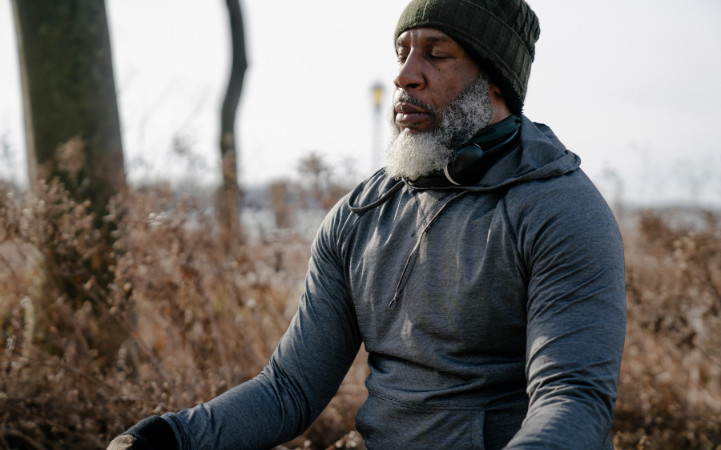
When unexpected negative events take place, we are left feeling lost and broken. Tragedies can be personal, such as the loss of a loved one or a divorce. However, they sometimes touch entire communities, as is the case with mass shootings or natural disasters. No matter what type of tragedy you’re going through, the emotions you feel are no doubt overwhelming and difficult to process.
At a time like this, it’s crucial to take care of yourself, even if you don’t know where to begin. In this article, we’ll take a look at five ways to cope with tragedies. Although not every coping mechanism may be the right fit, they’ll guide you in the right direction so you can take positive steps toward recovery. Don’t forget to give yourself plenty of compassion and patience along the way.
Topics Covered:
- How tragedies impact our bodies and minds
- Common responses to tragedy
- How to cope with tragedies
- Soothe your nervous system with The Art of Living
How tragedies impact our bodies and minds

When we go through a traumatic event, our brains are impacted in surprising ways. In a process called neuroplasticity, our brain alters nerve connections and creates new ones to adapt to the trauma we are facing. In severe cases, our brains force us into survival mode, and this can have a negative effect on our health and cause changes in:
- Memory
- Mental performance
- Sleep
- Behavior
- Immune system
Short-term, these changes may not seem like a big deal. However, traumatic events may cause long-term stress and push us into survival mode for days, weeks, or months.
When we remain in this state of survival long-term, it becomes our “default setting”. This can cause far-reaching effects, both physical and emotional. Working through trauma can help us regain our health and a sense of normalcy, despite the difficult time we may be coping with.
Common responses to tragedy

The way you respond to tragedy may be different than the way those around you do so, and that’s okay. There is no right or wrong way to react. You may feel angry about what happened, depressed, or even in denial. All of these are common and completely normal reactions.
You may even experience physical symptoms. Common reactions include:
- Increased anxiety
- Difficulty concentrating or making decisions
- Detached feelings or emotional numbness
- Depressive episodes
- Nightmares or difficulty sleeping
- Feelings of helplessness
- Irritability
- Appetite changes
- Headaches
- Upset stomach
For most people, the symptoms above are temporary and eventually disappear with the intensity of grief. As you get to a point where you accept what happened, you may start to move on and return to normal life to the extent possible. Still, other people experience prolonged grief, which may impact their life for years.
How to cope with tragedies

You shouldn’t force yourself to get back to normal, as this takes time. However, the following coping strategies can help you care for your emotional and physical well-being as you start your road to recovery.
Seek professional assistance
When we’re going through a traumatic event, the last thing we want to do is talk to a complete stranger about our emotions. However, doing so can be a helpful experience, especially if you find the right therapist. A mental health professional can help you process the event and understand your feelings better, which is valuable in the weeks and months after trauma. Sometimes just getting your bottled-up emotions out in the open can help you start to heal.
Lean on your support system
It’s normal to want to be alone when you’re going through difficult emotions, but isolating yourself can negatively impact your mental health. Trying to face the aftermath of a traumatic event alone can further exacerbate the symptoms of grief, such as depression.
If possible, reach out to family members and friends, or find support groups within your community or online. No matter who you choose to be around during your time of grief, make sure to let in the people who love you. Good company and connecting with people can make the hard times easier and less lonely.
Treat yourself with kindness and patience
If you struggle with perfectionism or tend to set high expectations for yourself, you may find yourself trying to get back to normal in a hurry. Although it’s a good thing to try to help yourself process trauma and take positive steps to improve your health, you shouldn’t force yourself to get over what happened. Being kind and patient with yourself is just as important. Take it one day at a time.
It helps to stay in touch with your emotions, checking in with yourself during your daily routine. Ask yourself what you’re feeling, and take some time out of your day to reflect. You may want to spend some time journaling, allowing yourself to get angry or cry if needed. However you feel at the moment, let your emotions flow naturally.
Another way you can treat yourself with kindness is by taking time for self-care. Regular exercise, healthy meals, enough sleep, and plenty of time to relax are all important when dealing with traumatic stress.
Practice breathwork

As simple as it may seem, taking time to breathe is an important part of healing and getting through tragic events. It can help us destress, feel more grounded, and clear our heads. As a result, it’s especially helpful if your grief causes feelings of detachment, anxiety, or difficulty concentrating.
To start making breathwork part of your day, learn a simple technique. Our SKY Breath Meditation is a powerful place to start. It’s made a tremendous impact in helping people recover from trauma in the aftermath of school shootings, 9/11, and even war.
Once you learn SKY, it’s easy to incorporate it into your daily routine — when you wake up, when you take a break from work, or at the end of a long day.
Add meditation to your routine
When you experience grief, you may feel that you struggle to find peace in the midst of so much pain. Meditation can help you quiet your mind, calm your negative emotions, and let go of the thoughts that are weighing you down. It won’t eliminate all your sadness, but it will help you shift your focus, give you needed peace, and connect with the present moment.
Soothe your nervous system with The Art of Living
Dealing with tragedy is never easy, and there’s no quick fix to getting over your grief. But, when you find healthy ways to process your emotions and cope, progress will come, even if it is gradual. Remember to be patient and kind to yourself, praising yourself for the little steps you take each day.
If you would like to try meditation during this difficult time, The Art of Living can help you get started. We offer courses that teach you how to start a meditation practice, in addition to guided meditations for beginners. Download our Journey App to get started, or join an introductory session with one of our coaches to learn what our meditation techniques are all about!





























